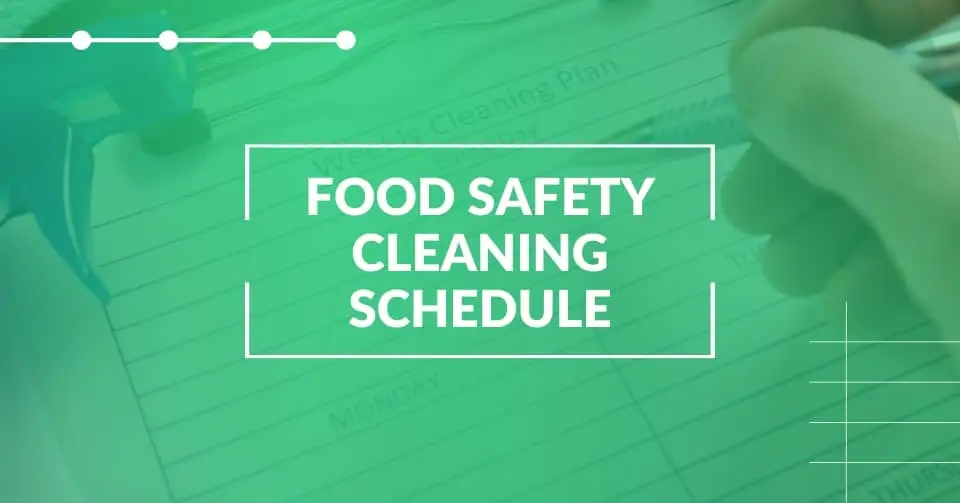The Food Safety Modernization Act (FSMA) represents a paradigm shift in U.S. food safety regulations, focusing on preventing contamination rather than merely responding to it. The Traceability Rule (FSMA Rule 204), enforces stringent traceability requirements for high-risk foods. This initiative aims to enhance food safety practices among retailers, demanding a higher degree of accountability and transparency in the food supply chain.
Retailers must now meticulously collect key documentation on high-risk foods that are being sold or used at their locations. This ensures a clear traceability path, facilitating rapid responses in case of food safety incidents. The rule not only protects public health but also bolsters consumer confidence in the safety of the food market.
This shift towards proactive measures requires significant adjustments from retailers. They must invest in systems capable of detailed tracking and reporting, adhering to the new standards set by FSMA. The implementation of these changes might pose operational and financial challenges but is essential for compliance and ensuring food safety.
The broader impact of FSMA Rule 204 extends beyond individual retailers. It signifies a more collaborative effort across the entire food supply chain, including producers, processors, and distributors. This collective approach enhances the overall safety and integrity of the food system, benefiting both consumers and industry participants. With its forward-thinking approach embodied in FSMA Rule 204, the FDA marks a new era in food safety. It underscores the importance of prevention, transparency, and collaboration in ensuring the well-being of consumers and the reliability of the food supply chain.
The following records must be provided by the Shipper and kept by the retailer:
- Traceability lot code for the food.
- Quantity and unit of measure of food.
- Product description for the food.
- Location description for the immediate subsequent recipient (other than a transporter) of the food.
- Location description for the location from which you shipped the food.
- Date you shipped the food.
- Location description for the traceability lot code source or the traceability lot code source reference.
To efficiently handle recalls under FSMA Rule 204, retailers should implement the following best practices:
- Enhanced Record-Keeping: Maintain meticulous records of traceability lot codes, quantities, product descriptions, shipping dates, and locations related to high-risk foods. This detailed documentation is essential for quick traceability.
- Technology Integration: Invest in advanced tracking and reporting systems. Utilize software that can manage and retrieve traceability data effectively, ensuring prompt response during recalls.
- Training and Awareness: Regularly train staff on the importance of FSMA compliance and procedures for handling food recalls. This includes understanding traceability requirements and the significance of accurate record-keeping.
- Supplier Collaboration: Work closely with suppliers to ensure they also comply with FSMA requirements. This collaboration enhances the transparency and reliability of the entire supply chain.
- Proactive Recall Plans: Develop and regularly update a recall plan. This should outline clear steps for identifying, isolating, and managing recalled products, including communication strategies with customers and regulatory bodies.
In conclusion, FSMA Rule 204 marks a significant advancement in food safety practices, shifting the focus from reactive measures to proactive management in the food supply chain. By implementing stringent traceability requirements for high-risk foods, the rule enhances the ability of retailers to quickly respond to food safety incidents, thereby protecting public health and bolstering consumer confidence. As retailers adapt to these new standards, they not only ensure compliance but also contribute to a safer, more transparent food market, ultimately benefiting the entire food ecosystem and reinforcing the commitment to public well-being.
At FoodReady, our commitment goes beyond just updating our customers about new regulations. We are dedicated to providing effective solutions that help ensure full compliance with the latest requirements. Discover how our FSMA 204 consultant can assist you in adhering to the new FSMA Rule 204, which mandates additional traceability records for certain foods.
FAQs
High-risk foods are identified based on their potential to harbor pathogens or contribute to foodborne illness outbreaks. These foods require stringent tracking due to their risk profile and history of associated illnesses.
Retailers can mitigate costs by investing in scalable technology solutions that streamline traceability processes. Efficient data management systems can reduce manual labor and prevent costly food safety breaches.
Non-compliance with FSMA Rule 204 can result in fines, product recalls, or legal actions. Persistent violations may lead to stricter regulatory oversight and potential damage to brand reputation.
This rule strengthens the need for transparency and cooperation between suppliers and retailers. Enhanced communication and shared responsibility for traceability are crucial for compliance and ensuring food safety.






